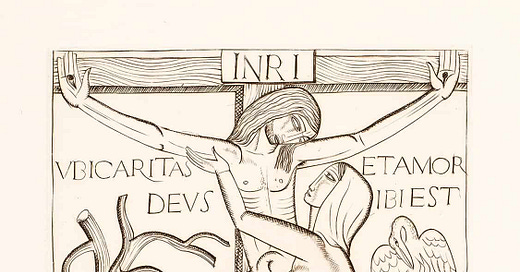God Glorifies Himself in the Human
God Glorifies Himself in the Human: A Christological Anthology
This is the start of a new series, a Christological anthology, highlighting what I regard as essential passages. I will also offer some brief reflections on the passage, including suggestions for teaching it.
The first entry, which gives the anthology its title, is from Dietrich Bonhoeffer’s 1933 lectures on Christology, …
Keep reading with a 7-day free trial
Subscribe to Speakeasy Theology to keep reading this post and get 7 days of free access to the full post archives.




